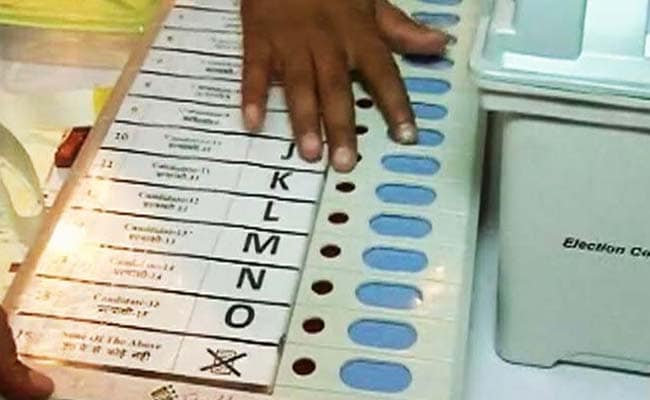
At the Election Commission's event, hackers will get five hours and access to four machines each.
Quick Take
Summary is AI generated, newsroom reviewed.
Hackathon with vote machines could be unconstitutional: court
Political parties claim machines can be rigged
Election Commission dares them to prove it today
"The EVM challenge is on as scheduled. It will start at 10 am. The NCP and CPI-M have nominated three representatives each. The challenge will happen in two separate halls simultaneously," an Election Commission spokesperson said.
In a verdict that also puts a question mark on the parallel hackathon announced by AAP leader and Delhi Chief Minister Arvind Kejriwal, the High Court said that political parties, NGOs and individuals should not criticize EVMs as "they are not hackable and there can't be any manipulation at the manufacturer's level."
The Uttarakhand High Court had earlier asked for voting machines used in the Uttarakhand election to be sequestered after Congress candidates complained that the result was gamed against them. The warning to the Election Commission against its plans for Saturday's hackathon was based on a case filed by a Congressman, Dr Ramesh Pandey, who says the Commission does not have the authority to conduct the event.
So far, these are the arrangements made for the hackathon. A total of 14 Electronic Voting Machines or EVMs will be made available to representatives of Sharad Pawar's party and the Left who hope to prove that the Election Commission is wrong and that the equipment used by it can be gamed, as alleged by a series of political outfits including the Congress and Delhi Chief Minister Arvind Kejriwal's Aam Aadmi Party or AAP after Prime Minister Narendra Modi front-lined his party's gigantic wins in Uttar Pradesh and Uttarakhand.
AAP, which has accused the Election Commission of colluding with the BJP to rig results in its favour, has announced that it will hold a parallel hackathon of its own today. The machine it will make available to techies and others is the one that was used by the party in the Delhi Assembly last month in a televised demonstration of its manipulation. The Election Commission said the machine used was a far cry from the real thing and rejected the result.
At the Election Commission's event, hackers will get four hours - from 10 am to 2 pm - and access to four machines each. The other EVMs will be kept as back up.
The Election Commission has said its challenge has two parts - the hackers will have to prove that the EVMs used in the five states that just voted including Uttar Pradesh and Punjab were manipulated to favour a particular candidate or political party by altering the results stored in them.
Part Two of the challenge calls for participants to prove that the machines used in the assembly polls were manipulated before or on the day of voting.
The participant will be considered "failed" if the EVM stops functioning as a result of its inbuilt defense mechanism against tampering.
The participants - three members per party - can "physically examine" EVMs and check circuits, chips and motherboard, but cannot replace any part. Arvind Kejriwal's party had asked for these restrictions to be removed, claiming it "would not be possible to tamper with the machines without giving people a free hand to do so."
Track Latest News Live on NDTV.com and get news updates from India and around the world

